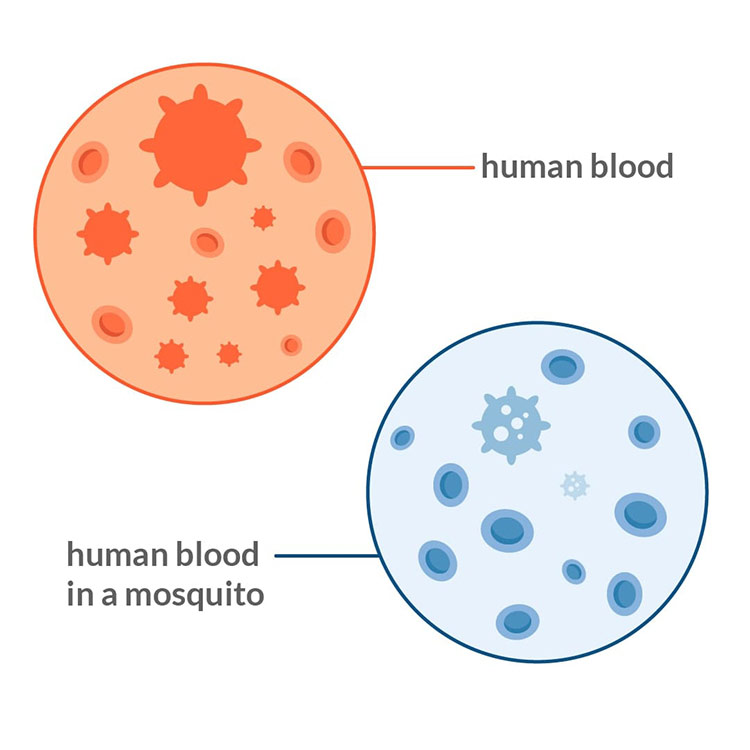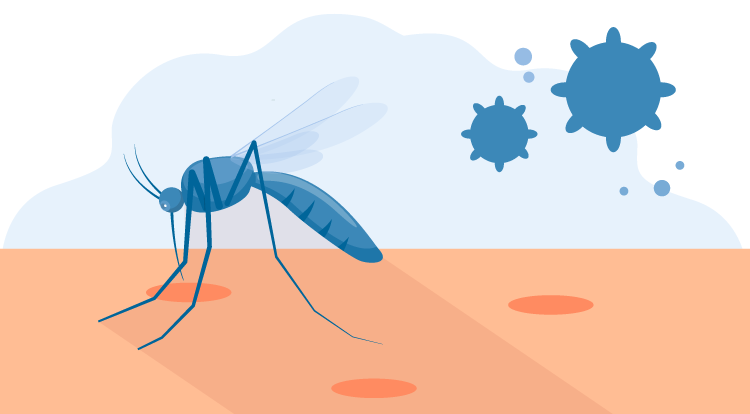Mosquitoes are known to carry contagious viruses, but can mosquitoes also transmit HIV? In this blog we will debunk this common misconception about mosquitoes and HIV symptoms and answer that question.
Mosquitoes are notorious for spreading more than a few dangerous infections, most notably malaria, West Nile, and Zika viruses, to name a few. Because of the viruses they transmit, mosquitoes kill more people each year than any other insect/animal.
While the threat of contracting a dangerous virus from a mosquito is certainly credible; HIV is not one of those viruses. Multiple studies have found no evidence that mosquitoes can transmit HIV infections, even in countries with high HIV rates and large uncontrolled mosquito populations.
Here are some reasons why mosquitoes cannot transmit HIV from person to person.
HIV is present in very low concentrations in the blood
Mosquitoes can spread certain diseases from person to person because these diseases often circulate in very high concentrations in human blood. This means that the blood is more likely to be sucked by the mosquito carrying the virus or disease. However, the HIV virus circulates in extremely low concentrations in the blood, and it is impossible for one mosquito (or any number less than 10 million mosquitoes, according to a Rutgers University study) to carry enough HIV-positive blood to produce a cause new infection.
Mosquitoes do not pass blood from one host to another
Another common reason people worry about the possibility of mosquitoes transmitting HIV stems from a mental comparison between the risk of sharing needles and the needle-like mechanism mosquitoes use to bite and draw blood. In reality, mosquitoes have a system of six different mouthparts, not one needle-like mechanism. Some of these mouthparts are used to pierce the skin of the person or animal. Two of the mouthparts act as tubes, with one tube used to suck blood from the host and the other used to inject the mosquito’s saliva into the host. The mosquito’s saliva contains anticoagulants that allow the mosquito to feed more efficiently. No blood that a mosquito has previously swallowed enters a host, meaning that a mosquito that takes blood from a person with HIV cannot expose another person to that blood. Let’s look at malaria compared to the HIV virus. After incubation in the mosquito, the malaria parasite can migrate to the mosquito’s salivary glands. When a malaria mosquito bites a host, the malaria parasite is transmitted to the host through the mosquito’s saliva.
Sharing a syringe and needle used by a person with HIV is different. With each injection, blood is always put into the needle and syringe. When using a needle that has been used by someone with HIV, there is a risk that blood in the needle or syringe will be passed on to another person. The amount of blood put into the needle and syringe is much greater than that of a mosquito. Moreover, the HIV virus can survive in the needle and syringe for almost four weeks.

HIV cannot survive in mosquitoes
Another reason why mosquitoes cannot transmit HIV is that the virus cannot reproduce in their bodies. When a mosquito sucks blood that contains the HIV virus, the virus is broken down in the mosquito. The HIV virus needs human T cells to reproduce and mosquitoes do not have T cells. This also applies to other blood-sucking insects, including fleas, bed bugs and lice. HIV cannot reproduce in these insects, so the virus dies.
HIV requires specific conditions for transmission
In short, there are several conditions that must be met before HIV transmission can occur:
- The transmission of the virus requires a route through which it can enter the body. For example, exposure to mucous membranes or blood-blood contact.
- Virus-infected fluid such as blood, semen or breast milk must enter the body.
- In both the HIV-positive person and the fluid transmitting the virus, the viral load must be high enough to cause an infection.
- The virus cannot be spread through skin-to-skin contact and the virus cannot reproduce or be stored in saliva, urine or feces.
With these provisions in place, the risk of HIV transmission through mosquito bites is largely considered impossible.

